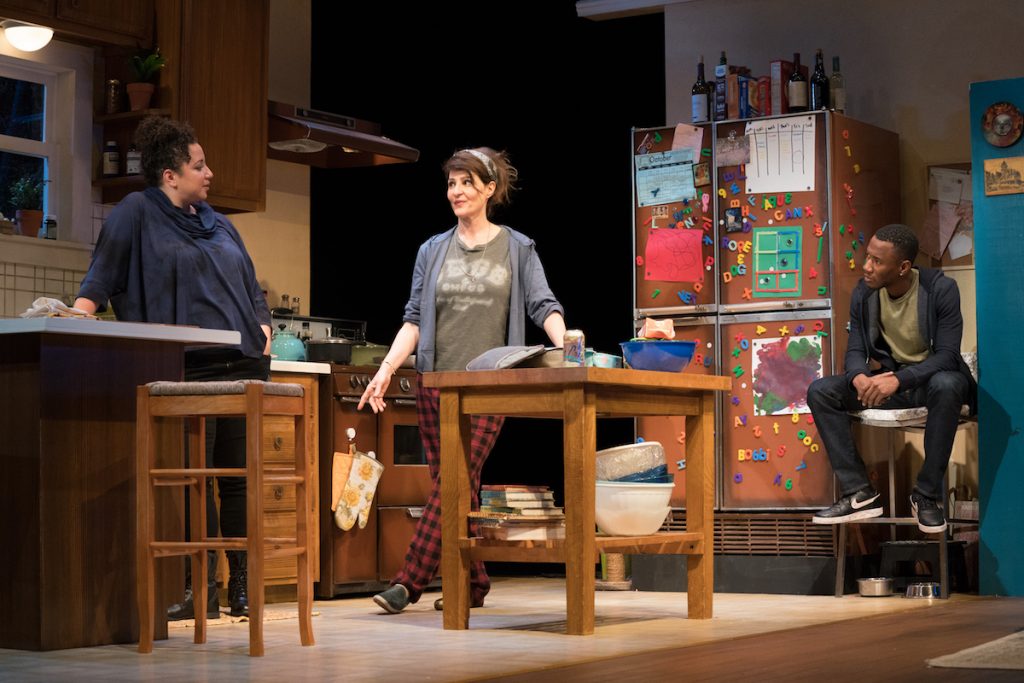The first thing I turned to in the newspaper as a kid was Ann Landers’ advice column.
I couldn’t get enough — still can’t — of human dysfunction. The letters were longish but Ann’s advice was always succinct, practical, and to the point.
“You have every right to tell your in-laws that they cannot smoke in your home.”
“That child needs to be seen by a professional for evaluation.”
“Give Gloria notice — either she stops seeing that married man, or she will have to move out at the end of the month.”
My favorite was when Ann hit some prying busybody with the familiar zinger, MYOB: Mind Your Own Business.
Enter “Tiny Beautiful Things,” a book by mega-popular author Cheryl Strayed and now a play that was recently staged at the Pasadena Playhouse. Strayed wrote an anonymous advice column for a time under the pen name Sugar and, after revealing her identity, collected the letters into “Tiny Beautiful Things.”
Steve Almond, the writer who originally passed on the column to Strayed, calls her approach “radical empathy.”
That’s one way to put it: padding around her suburban kitchen in a hoodie and pajama bottoms, to my mind Sugar (played here by Nia Vardalos) makes every problem about herself: her grief over her mother’s death, her fling with heroin, the risks she’s so bravely taken (and that worked out, because look, here she is, the best-selling author of “Wild,” writing an advice column that will also be a bestseller!).
The play consists of three characters who take turns reading their letters aloud. Then within 1 ½ seconds Sugar responds with a TED Talk-like answer. “Don’t surrender all your joy for an idea you used to have about yourself that isn’t true anymore.” “Nobody will protect you from your suffering.” “You cannot convince people to love you.”
I’m probably just jealous. But I kept thinking of Christ on the cross, and Sugar padding up in her pajamas to hand him a couple of purple balloons, pat him on the head (oh wait, the Crown of Thorns would have been in the way), and remind him that he, too, could find healing through Tiny Beautiful Things.
In fact, the Romans offered him such cheap anesthesia: sour wine mixed with gall. He refused it.
The audience, however, seemed to love the play. So MYOB I told myself. And on the way home, I mentally composed my own letter.
“Hey Sugar, I’m almost 67 years old and have worked steadily since the age of 14. I’m divorced, childless, collect $1,417 a month in Social Security, and make approximately the salary of a fast food worker in faithful service to my vocation of writing. I pay $1,450 for a teeny one-bedroom apartment which, due to on-site construction noise, I’ve had to vacate for the last five months, six days a week, 8 a.m. to 4 p.m., in favor of working in the library.
I’m tired and I feel like a worldly failure. I’m afraid of becoming so debilitated I can’t work, then dying of Alzheimer’s as my mother and maternal grandmother did. Sometimes I feel as if I’ve done my entire life wrong, missed some essential lesson or tenet or turn. On the other hand, I’m appalled by my self-obsession. Why should I have a roof over my head when so many of my brothers and sisters don’t? Have I ever for a second truly loved my neighbor as myself? How, on this next leg of the journey, can I try to love God with all my soul, all my heart, all my mind, all my strength?”
“Reach!” “Breathe in — breathe out!” and “Tackle your life!” don’t quite cut it here. So I went to Mass the next morning on behalf of both myself and a world in anxiety, conflict, and pain.
Afterwards, I fell into conversation with a fellow parishioner. She’s a wife and mother from an upscale neighborhood who, turns out, has also been going through a “rough patch” (we cracked up at the euphemism): childhood wounds, family wounds, wounds in the Church.
“I’m starting to think that this struggle, this poverty of spirit, this longing, this sense of exile and that our lives aren’t bearing fruit — this is it!” she said at one point. “This is the Way to Mt. Calvary! We’re never going to find a true resting place, here on earth.”
“But the Eucharist!” I added. “We’re so hungry for it. We just come and throw ourselves upon the Eucharist each day.”
We exchanged numbers, embraced, and parted sisters.
Afterward I thought about how this woman and I had seen each other many times at Mass, smiled, acknowledged each other, waved, but never talked — so why this particular day? Who knows. It was a Tiny Beautiful Thing.
Heather King is a blogger, speaker and the author of several books. For more, visit heather-king.com.
SPECIAL OFFER! 44 issues of Angelus for just $9.95! Get the finest in Catholic journalism with first-rate analysis of the events and trends shaping the Church and the world, plus practical advice from the world’s best spiritual writers on prayer and Catholic living, along with great features about Catholic life in Los Angeles. Subscribe now!

